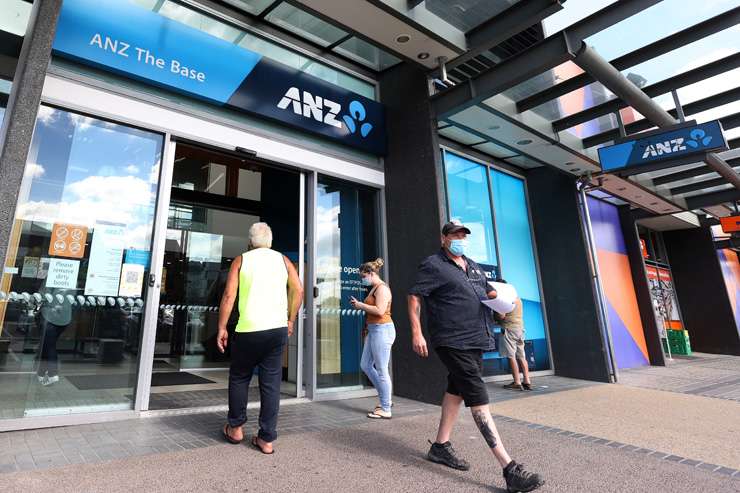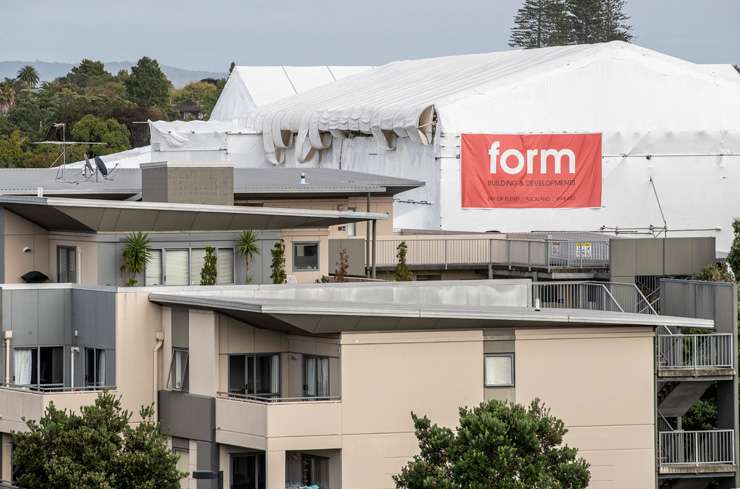Some property purchases are riskier than others, but buyers who can navigate the pitfalls often end up with a bargain. White knuckle purchases with risk written all over them include mortgagee and other forced sales, leaky homes, leasehold, waterside, and even brand-new apartments and homes bought off-the-plan. With any of these risky purchases it’s important to seek advice early from a lawyer and other professionals. Fish-hooks abound.
Mortgagee sales
When homeowners default on their mortgage payments repeatedly, banks or other lenders may sell their properties to recoup their money. Most mortgagee sales are at auction, and can be a bargain. Buyer beware, however.
The risks start with viewings. In many cases buyers purchase sight unseen because the former owner won’t allow access.
Start your property search
The next risk is that the sale price usually doesn’t include “chattels”, which includes curtains, carpets, light fittings, stoves, kitchen cabinets, and a range of other items the buyer may be banking on. These are sometimes removed or even ripped out by the former owner.
Vacant possession isn’t usually guaranteed and if the previous owners don’t leave, the new owner might need to get a court order to have them removed, which costs time and money.
Sometimes the property is badly damaged before being handed over. Buyers of the former home of then bankrupt Merlot Homes director Stuart Herron found it had been “ripped to pieces” before they moved in, with architraves, decks, carpet, the kitchen and even bathtub u-bends removed.
Mortgage adviser Campbell Hastie says when doing the numbers, the buyer’s bank may require a registered valuation and might only lend on the land because they can only guarantee that the shell of the house will be there when the old owner leaves.

Buying a house costs more than you'd think. Photo / Getty Images
Mortgagee sale and purchase agreements aren’t standard and are often weighted heavily in favour of the bank selling the property. Often all the vendor warranties and the right to approve title are removed from the contract, says Hastie.
The contract may include a clause that means buyers are not able to claim against the bank for late settlement.
Buyers also need insurance before they bid, just in case the former owner vandalises the property. Insurers are wary of offering that insurance, however, which can make it difficult to get a mortgage.
Proceeds of crime
Homes seized under the proceeds of crime legislation may also be cheap. The Criminal Proceeds (Recovery) Act 2009 allows the police to seize cash and assets that have been obtained directly or indirectly from the proceeds of crime.
These properties come with even more risks than mortgagee sales. The former owners are often criminals or have close criminal connections and can be very unhappy about their property being seized.
When the Crown tried to sell three properties at 631, 633, and 634 Maketu Road, Maketu, in the Bay of Plenty, last year, local Mongrel Mob president Valentine “Pop” Nicholas was reported to have said he did not recognise the Crown’s authority to take the family land and was at the time of writing refusing to move after being served an eviction notice. Buyers are expected to have a great deal of difficulty removing him.
Off-the-plan purchases
Buying a brand-new home has lots of benefits, not least of which is lower deposits, and for first-home buyers, doubled KiwiSaver First Home Grants if they and the property qualify.
Many buyers choose to buy those new homes off-the-plan before the home is built. They typically get a discount for being willing to sign up early and wait for the build. Those pre-sales allow developers to borrow the money to start construction.
This list of risks for off-the-plan purchases is long. Sometimes developers cancel the build because they can’t get finance. If prices have risen in the meantime, the deposit the buyer gets back may not be sufficient to buy another property.

The most critical step is making sure banks will finance your purchase. Photo / Fiona Goodall
If the housing market drops in value between paying the deposit and settling, a year or so later, the home may be worth less than the buyer paid, which could result in pre-approved finance being rescinded.
The price of building materials can rise during the build and in extreme circumstances the cost increases lead to developers triggering sunset clauses on all properties sold up to that point. A sunset clause is a clause in the contract which allows the sale to be cancelled if certain events happen, such as the Code Compliance Certificate (CCC) not being issued within a certain timeframe. If the sunset clause is exercised, the developer repays the deposit to the buyer and may well resell to new buyers at higher prices.
The sale and purchase contracts for new-builds are often non-standard and sometimes they allow for specification changes. In that case the developer may substitute materials that might not be like-for-like.
Mortgage pre-approvals often lapse before the home is built and changes to employment, regulations, interest rates, or banks’ appetite to lend might mean that the buyer cannot get another mortgage.
Off-the-plan properties are sold sight unseen because they’re not built. There is always a risk that the property might look different to the artist’s impression, be of poorer quality, and or just generally be a disappointment.
Finally if the developer goes bust before completing the build, the home may never be built.
Leasehold
Leasehold properties are relatively uncommon in New Zealand. Where they exist it’s often possible to buy a home for a third or less of the price of freehold.
With leasehold homes the buyer owns the building, but leases the land beneath it. Homeowners pay annual ground rent to the landowner. When the property changes hands, the lessee (seller) sells both the building and the right to lease the land to the next buyer.
The ground rent is typically a percentage of the value of the land. That can either be the value of the bare land, or the improved land.
Leases are either in perpetuity, or terminate after a period of time such as 100 years. Some leases give the lessee the option to purchase the freehold title at the end of the lease period.
The legalese in lease wordings can be tricky and buyers should always get them checked by an independent lawyer.

Buyers should do their due diligence before purchasing. Photo / Getty Images
One big risk of leasehold lies with terminating leases. As the remaining term starts to get shorter and shorter the value of the home will fall accordingly. Likewise as the lease nears a review date it is likely to sell for less than it otherwise would thanks to uncertainty around how much the ground rent will be in the future.
Leases got a bad name in New Zealand in part because of the way they were sold from the 1990s until the mid 2000s. Buyers were often given ground rent holidays for a number of years and the cost of the subsequent rent payments downplayed in the sales process. When the full rent kicked in, some buyers couldn’t afford to pay and lost their homes and apartments.
Leaky homes
Thanks to relaxations of the Building Act in 1991, around 80,000 homes and apartments built between then and the mid-2000s used products and methods that have not proved weather-tight. They leaked and, in many cases, rotted. Some, but not all leaky homes, have been remediated. Homes built in that era may have hidden rot in the structure, which can be extremely expensive to deal with.
Reveal Building Consultants director Nick Gaites, a registered building surveyor, says a rule of thumb is the cost of remediating a home starts from $3000 per square metre of exterior wall, which equates to a starting point of $600,000 for a typical two-storey leaky home.
“It can cost far in excess of what [buyers] expect to fix the building,” says Gaites. “And that can cause big problems with financing the project.”
Buying a leaky home with the intention of just living is not a good idea thanks to toxic mould, which may be hidden in the walls, or have been cleaned off for the open homes.

Leaky buildings: St Luke Garden, an apartment block in central Auckland that has suffered major problems since its construction. Photo / Michael Craig
“Buyers don’t understand exactly what the lived experience is going to be like in [a leaky home],” says Gaites. “When you have all that moisture inside the walls it means the insulation is ineffective because it’s water-logged. These buildings are colder and there is mould inside. It’s not a healthy place to live.”
Letting a leaky home to tenants that is a risk to their health could lead to compensation orders from the Tenancy Tribunal.
There is a small subset of investors who buy leaky homes as a strategy, remediate them and sell at a profit. The vast majority of such buyers are licensed builders by day or have other trades training. Giving a leaky home a quick makeover isn’t going to cut it.
Buyers of homes built during the period from 1990 to the mid-2000s who don’t want problems should ensure that the home has a Code Compliance Certificate and get their lawyer to check any contract before signing. They should get a building inspection done on the house, which includes a specialist weather-tight report. Beware of homes that were remediated in the late 2000s or early 2010s because some are coming up for second or third generation fixes, says Gaites.
Low-lying property
Just ask Nelson or Westport homeowners about the risks of flooding. Thousands of homes were flooded in storms in 2022. Thanks to climate change, rising sea levels could affect those who own waterfront properties on the coast, estuaries and harbours. The properties may face inundation. Because many of these properties are highly desirable, the risk of inundation may not be fully priced in. Buyers sometimes ignore the risk of rising insurance costs as well. Flooding is a growing risk and insurers are starting to implement risk-based pricing, which could make waterfront and other low-lying homes too expensive to insure.


















































































